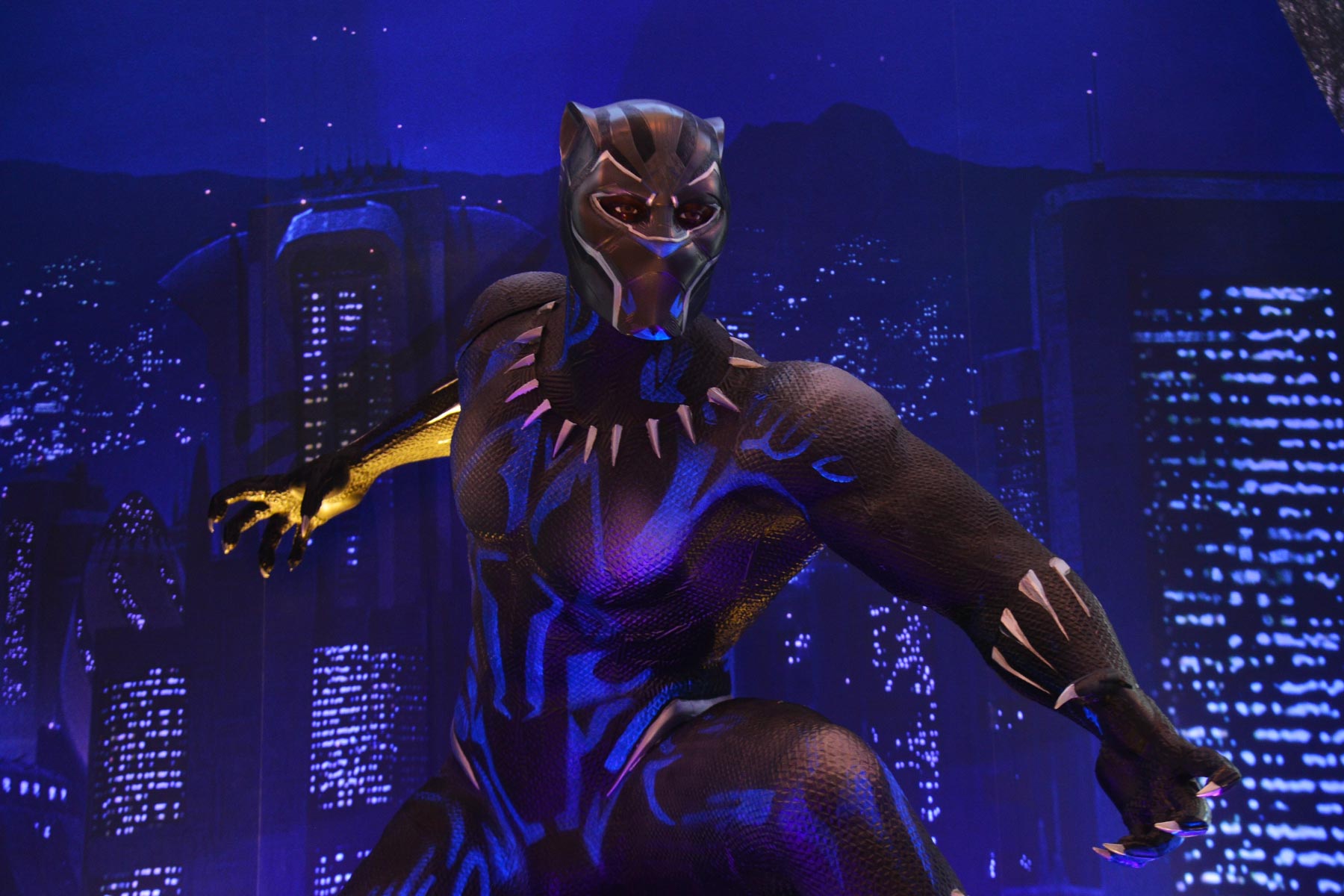
When “Black Panther” premiered last February, it was the movie everyone was talking about. Critics praised it, fans filled theatres week after week to see it, and merchandise and toys flew off shelves. It was almost impossible not to see a post about the film on the internet or a story about it in broadcast and print news, and Blair Davis, associate professor of media and cinema studies in the College of Communication, was the comic book expert the media talked to.
Shortly after the movie’s release, Davis was interviewed by the Chicago Tribune, Voice of America, Reel Chicago and ABC7 Chicago, among others, to offer his thoughts on the cultural impact and success of “Black Panther.”
Davis affirms that Marvel’s growing franchise of movies like “Captain America” and “The Avengers” has significantly changed the box office marketplace and the superhero movie landscape. The studio’s movies make millions and “Black Panther” was no exception: it shattered records and has earned about $700 million domestically.
“It’s a very different marketplace now than it was 15, 20 years ago. [Black Panther] is not the first black superhero on screen,” Davis says. He points to movies like “Blade” (1998) and “Spawn” (1997) that had relatively lower budgets and weren’t as accessible to mass audiences. “I’m glad they’ve built up the ‘Avengers’ series, because by the time they came around to ‘Black Panther,’ ‘Avengers’ gave it a way to spotlight black identity on a much larger scale than was ever possible before.”
Even though its financial success was expected, Davis says that the world’s positive response to the movie was not quite as expected. He references the “grassroots community efforts” to get people to see the movie: community groups, celebrities and sports figures bought out theatres to show “Black Panther” to children who might not have been able to afford a ticket. The young audiences were then able to see a movie that features a black superhero, African culture and an almost entirely black cast on the screen.
The film also focuses on strong, empowering women. Characters like Nakia, Okoye, Shuri and the Dora Milaje warriors are essential to the movie’s plot and the superhero’s survival. “We’re getting into a pattern in which it’s not just the muscle-bound men that are what an action hero can be,” Davis says.
The film’s soundtrack, curated by Pulitzer Prize winner Kendrick Lamar, was number one on the Billboard 200 when it dropped around the film’s release. According to Davis, the soundtrack and score are essential components of the film as well.
“The level of cultural significance in the music, in addition to the narrative, casting and director—I just think ‘Black Panther’ does so many things culturally right,” he says. “It will be remembered more than most other superhero movies.”

Blair Davis is the author of several publications, including “Movie Comics: Page to Screen, Screen to Page” and “The Battle for the Bs: 1950s Hollywood and the Rebirth of Low-Budget Cinema.” His latest book, “Comic Book Movies,” was released this year. Last April, he was featured in AMC’s new documentary series, “James Cameron’s Story of Science Fiction.”
Originally published in Conversations (Fall 2018 issue) and DePaul Magazine.